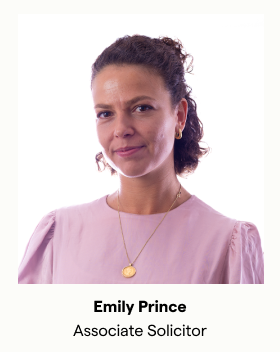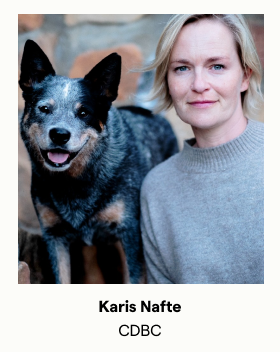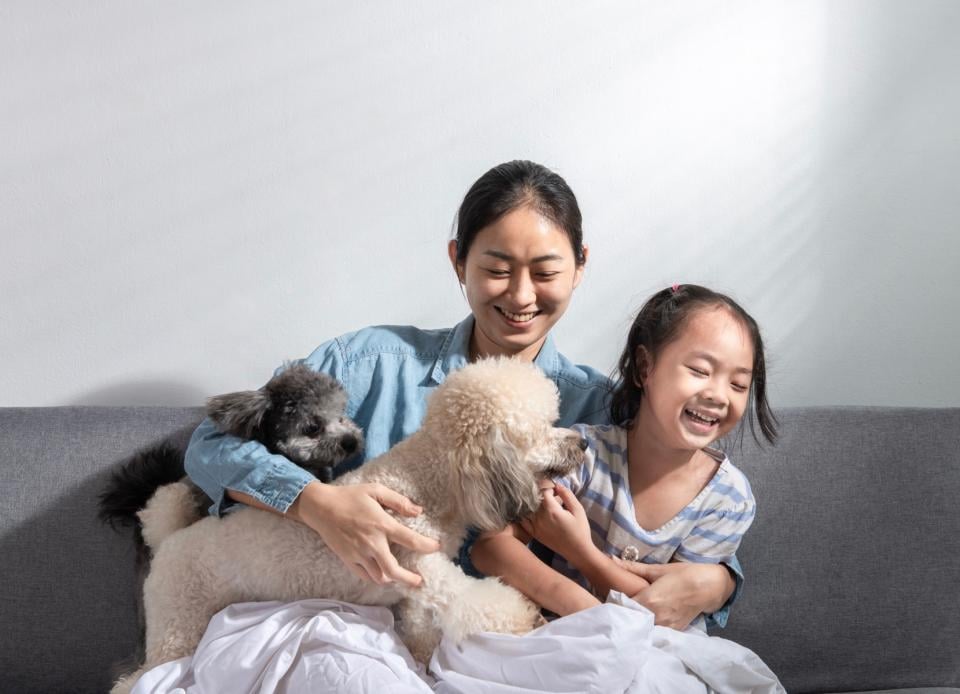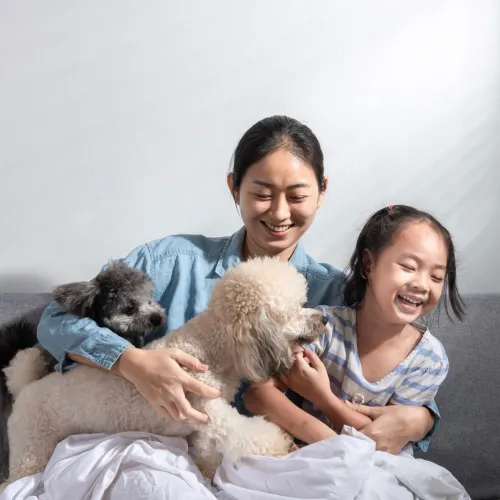Pets Deserve Better: Why UK Divorce Laws Must Evolve
By Emily Prince, Associate Solicitor at Amphlett Lissimore, and Karis Nafte, CDBC (Certified Dog Behaviour Consultant) & Accredited Family Mediator
The Working Group on Pets and Divorce was founded by Estella Newbold-Brown and Sarah Lucy Cooper, both passionate pet lovers who have witnessed firsthand the challenges pets face when their owners separate. The group is comprised by professionals with various backgrounds that all add value and insight in their goal to get new legislation that will recognise pet’s welfare in divorce. 
Among its dedicated members is Emily Prince, an Associate Solicitor, who has played a key role in building support for the group. She has reached out and gained the support from respected organisations such as the RSPCA and OurFamilyWizard and is currently collating case studies to support the need for change, so please reach out if you feel this affects you.
Emily has always been a pet lover and unfortunately has witnessed multiple occasions when instructed by individuals separating or divorcing where pets are weaponised. She says: “the lack of a legal framework and guidance specifically aimed at the protection and treatment of pets on separation and divorce does not only increase the tension and animosity between couples, but also increases the time needed to resolve issues. The hope is that change will be introduced soon and, in the meantime, I always recommend OurFamilyWizard, which works wonders not only for children, but also for the furry ones!”
Karis Nafte is also a member of the Working Group. She is a global pioneer in the world of pet custody as a family mediator with twenty-five years experience as a certified animal behaviour consultant. Having witnessed the increase in anxiety and sever stress on pets when treated as mere property during divorce proceedings, Karis works to help ensure a pet’s future living arrangements are decided based on their best interest.
family mediator with twenty-five years experience as a certified animal behaviour consultant. Having witnessed the increase in anxiety and sever stress on pets when treated as mere property during divorce proceedings, Karis works to help ensure a pet’s future living arrangements are decided based on their best interest.
Her unique dual expertise has given her an unparalleled view of how the current legal framework in England fails the animals we claim to love. From her experience, she sees pets weaponised in bitter battles, used as tools for emotional blackmail between warring spouses. Because the laws do not allow their wellbeing to be considered when they are caught in a custody fight, these innocent animals become pawns in human conflict.
For divorced families navigating a pet custody plan, Karis is available as support to create schedules and routines that allow pets to thrive. She can be found on LinkedIn or at whokeepsthedog.com.
How does divorce impact pets?
Since its creation, the Working Group has gained momentum through media coverage and public engagement, using this platform to highlight the urgent need for legal reform. Under the current law, pets are treated as chattels (a legal term for possessions) rather than as living beings with welfare needs. This outdated classification often results in outcomes that are not in the best interests of pets.
In a country where nearly half of households own a pet, family law cases frequently involve disputes about animals. Emily Prince has seen many instances where, following separation, pets have faced distressing outcomes: being shuttled between households, or in the worst cases, being surrendered to shelters due to unresolved conflict between owners.
To better understand the scope of the problem, the Working Group launched a survey, which confirmed their concerns: the lack of legal guidance leaves families and courts without a framework for ensuring pets’ welfare. This not only prolongs disputes and increases stress for families, but also places additional strain on already overstretched courts.

How is the Working Group advocating for better care for pets after divorce?
The Working Group is now advocating for new legislation that would recognise pets’ welfare in family law. Such reform would not only safeguard animals during separations but could also reduce the number of cases escalating through the courts, offering a fairer and more efficient system for families and their pets alike.
In a recent survey to family law professionals by The Working Group, almost a quarter of those who replied stated they have encountered at least two to five cases involving pet custody, with over 50% reporting more than five. However, nearly 60% of people confirmed that cases involving pets are increasing, which points to a clear need for change.
In addition, over 75% of those surveyed stated that the involvement of a pet made the matter more difficult to settle. 89% agreed that there should be at least some court guidance to help settle cases involving pets and keeping them out of court.
Although designed for those co-parenting children, OurFamilyWizard can also be used for pets. The app’s tools enable clients to include their pets’ needs, vet appointments, expenses and so much more. For example, if time with pets is shared across homes, pet parents can use the app’s parenting schedule tool to create a colour-coded calendar showing where their pet will be spending each day. Tools like these help those who share the care of their beloved pets after separation, and the Working Group recommends OurFamilyWizard to divorced or separated parents, whether they are sharing time with pets, children or both.
The consequences of the lack of legislation are heartbreaking. Animals can be separated from the person who they primary bonded without consideration of their psychological wellbeing. Pets are awarded to a person who cannot meet their individual needs, simply because they are deemed "property" to be divided. The stress, anxiety, and behavioural problems that follow are predictable and preventable.
We know that pets are sentient beings capable of deep emotional connections, fear, joy, and grief. Modern animal science has proven what pet owners have always known; our companions are not objects, but family members with genuine feelings.
The Working Group is striving for change, which we hope will be obtained thanks to their efforts. Their involvement and discussions at the House Of Lords will continue, but, in the meantime, we need to sensitise people and teach how to prevent conflict. OurFamilyWizard is a helpful tool to assist in this, until further change takes place.





